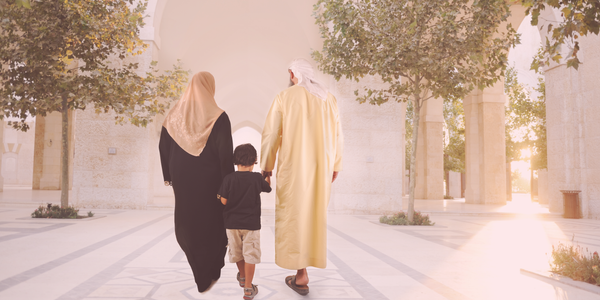How you manage your money in your twenties can be a catalyst or inhibitor of your long-term financial growth.
Whether you're starting your career, planning for a family, or exploring new adventures, it’s important to implement simple principles to build a stable financial picture.
Here, you’ll learn 7 essential things about personal finance every Muslimah should understand:
1. Understanding Halal Investing 💰
Investing isn’t just for the wealthy—it’s how you build wealth.
Like many aspects of managing money, investing should be consistent and long-term focused.
Halal investing involves choosing financial products that comply with Islamic principles. This includes avoiding investments in industries like alcohol, gambling, and interest-based financial institutions.
- Learn the Basics: Start by understanding what makes an investment halal. Research companies, funds, and other investment opportunities that are Sharia-compliant.
- Consult with Experts: Seek advice from financial advisors who specialize in halal investing. They can guide you in selecting the right funds and stocks.
- Use Halal Investment Platforms: Utilize platforms like Wahed Invest, Zoya, and Amana Mutual Funds to learn more about halal investments.
2. Budgeting with Intention 💭
A solid budget is the foundation of any financial plan. And no, this doesn’t make you a tightwad; it means you’re proactive.
A budget can be your monthly roadmap that aligns your spending with your values and goals.
- Be Proactive: Use budgeting apps or simple spreadsheets to predict your monthly income beforehand, create a plan for the money, then track your income and expenses.
- Set Financial Goals: Define clear, achievable financial goals. This could include saving for Hajj, buying a car, Eid gifts, or starting a business.
3. Building an Emergency Fund 🚨
One thing’s for sure—it is going to rain, but none of us know when.
An emergency fund helps you stay financially secure during unexpected events like job loss or medical emergencies.
- Start Small! Begin by saving a small amount each month until you have enough to make you comfortable (rule of thumb: 3 to 6 months of living expenses).
- Use a Separate Account: Keep your emergency fund in a separate, easily accessible savings account to avoid spending it on non-emergencies, like a shopping spree at the mall.
4. Educating Yourself on Personal Finance 💌
Knowledge is power. Understanding the basics of personal finance can significantly improve your financial health.
- Read and Learn: Invest time in reading books, blogs, and articles on personal finance. Consider taking a basic course on Islamic finance too.
- Attend Workshops: Participate in financial literacy workshops and seminars. Learn from financial advisors, coaches, and other experts who have your best interest in mind.
5. Avoiding Debt 🙅🏽♀️
Debt can be a significant burden, especially if it accrues interest, which is not permissible.
- Be Patient: Instant gratification can easily make you slip into getting a credit card or put little purchases on a BNPL (buy now, pay later) plan, which will add unnecessary debt to your financial picture. A little bit of patience can go a long way in avoiding debt.
- Explore Interest-Free Options: Look for interest-free financing options when making large purchases, such as Islamic home financing.
6. Giving Back through Zakat and Sadaqah ❤️
Charity doesn’t decrease one’s wealth. Giving back not only fulfills a religious obligation but also helps in wealth purification.
- Calculate and Pay Zakat: Ensure you calculate your Zakat accurately and pay it annually. There are online calculators to help you determine the correct amount.
- Regular Sadaqah: Make it a habit to give small amounts of Sadaqah regularly. This not only benefits the community but also brings barakah to your wealth, Insha’Allah.
7. Financial Planning for the Future 🌿
Planning for the future is essential. Whether it's for retirement, building generational wealth, your children's education, or long-term care, having a plan that includes doing a little on a consistent basis can set you up for your future goals.
- Retirement Savings: Contribute regularly to retirement accounts like IRAs or 401(k)s. Make sure they are Shariah-compliant.
- Education Funds: If you want your kids to go to college, consider opening up education accounts for them to save toward their tuition.
Your financial journey is personal and unique; there isn’t a one-size-fits-all. However, these general practices will help you take control of your finances, align them with your faith, and plan for the future.
Comment any additional tips, hacks, and gems below! ⬇️ 💸
Disclaimer: This is intended for educational purposes only and does not constitute specific financial advice.
Written By: Fatimah Jagana | Fatimah is a financial coach who helps Muslim women manage their money. She enjoys learning about human behaviour and spending time with her family.





Member discussion